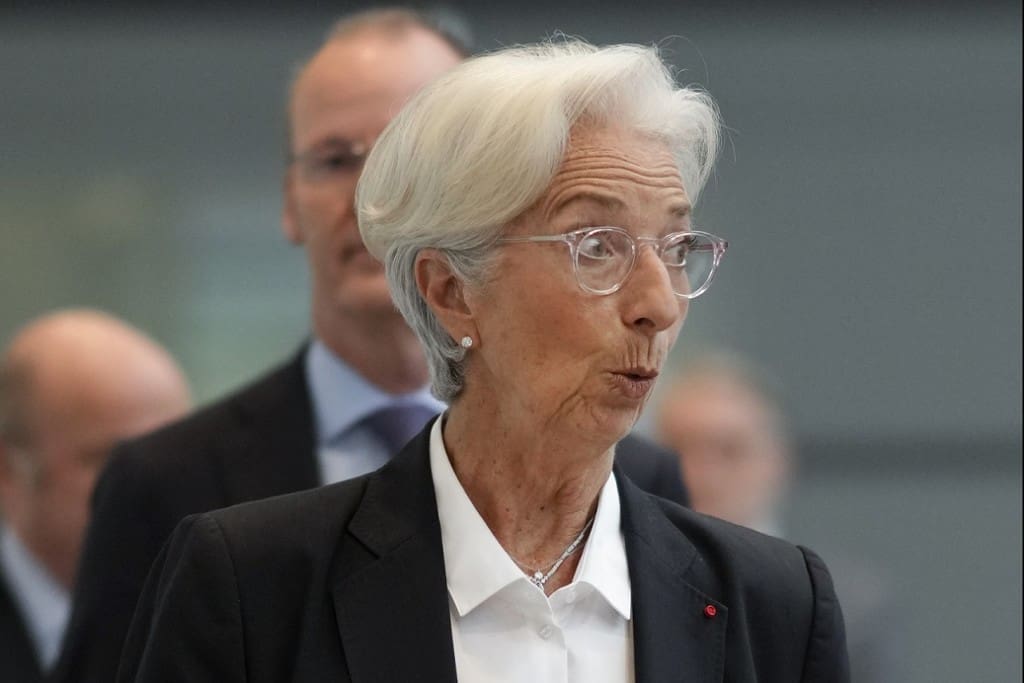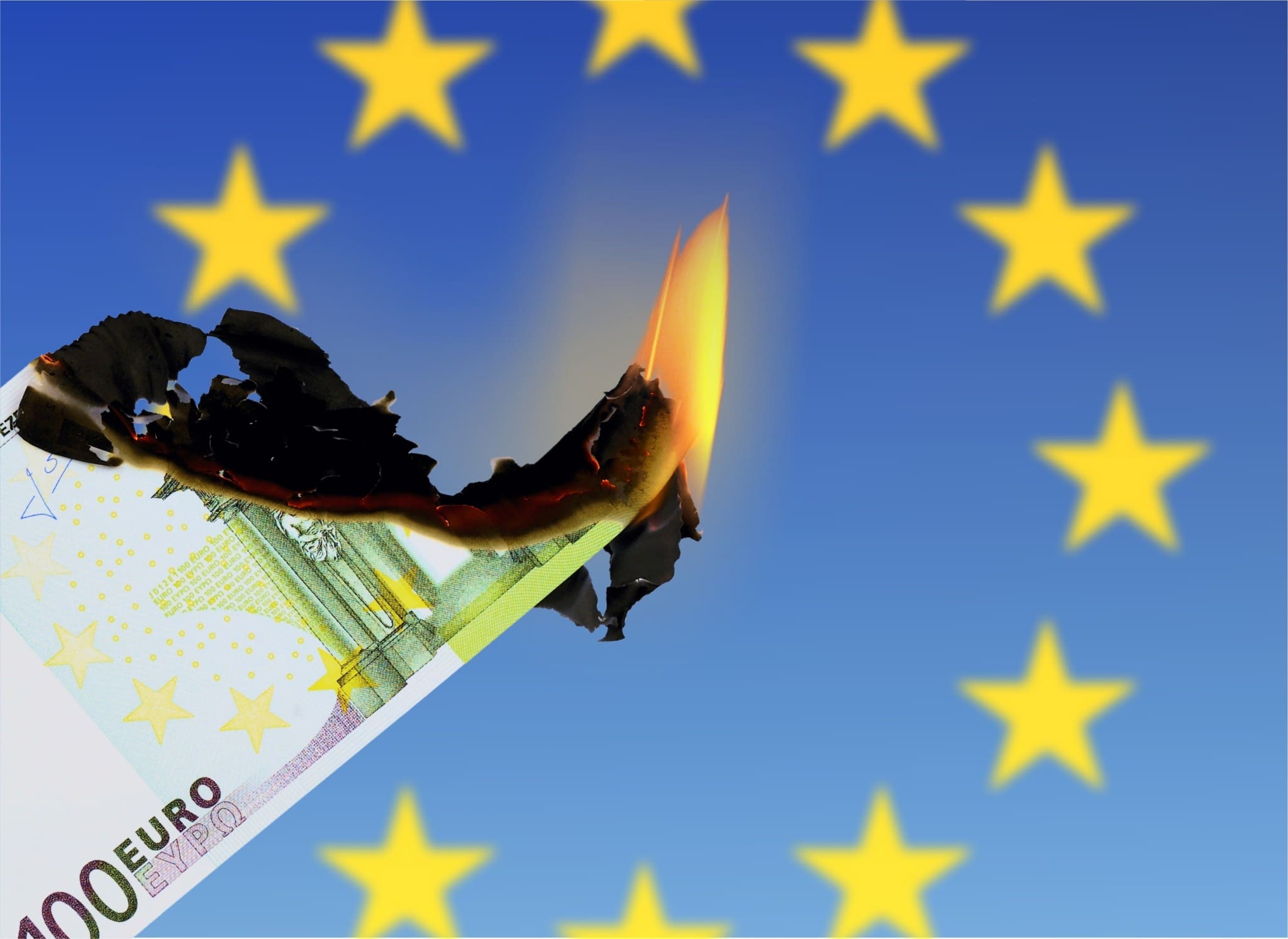The eurozone is swimming in money, with the amount of cash in circulation in the EU increasing sixfold between 2014 and 2021. The balance sheet total of the European Central Bank (ECB), which grew from €1 trillion to €2 trillion between 1999 and 2015, is now a staggering €8.8 trillion. At the end of 2021, half of the ECB’s balance sheet consisted of government bonds from the euro area, i.e., the debt of the euro countries, writes Markus Brandstetter for Junge Freiheit.
The American winner of the Nobel Prize in Economics, Milton Friedman, once said: Inflation is always and everywhere a monetary phenomenon. By this, he meant that inflation is always triggered by a previous increase in the money supply. Not by a supply or demand shock such as a sudden increase in energy prices or helicopter money from the government.
[pp id=38071]
Friedman’s dictum clearly states that wars, catastrophes, global warming, unions or the oil sheiks are not to blame for inflation — but solely the central banks. If central banks increased the money supply strictly in line with increases in economic productivity, there would be no inflation.
However, without the ECB, there would also be no debt-financed rescue programs that feed every unproductive economy in the eurozone and buy government bonds from countries with lousy credit ratings. And there would not be all the rescue packages, special funds, supplementary budgets, and relief for citizens, all of which have been financed in the EU for years through new debt. Without the ECB and its diverse aid programs, which hide behind acronyms that no one can remember, the EU would probably have fallen apart in 2009 after the financial crisis.
[pp id=37923]
The EU is not broken, but all of its previous actions are now costing Europe. During the golden years between 2010 and 2020, when unemployment, interest rates, and inflation were low, the economy was growing, and stock and real estate markets were racing from record to record, and no one thought about inflation. Everyone expected the ECB’s perpetual motion machine of boundless money creation to keep turning indefinitely and comfortably finance more and more debt for EU states.
Then, in the fall of 2021, a monster emerged from the depths that most, especially the ECB bankers, had long thought dead: inflation. In May 2021, the consumer price index in Germany reached 2.5 percent for the first time since 1994; in October, it was already 4.5 percent, at the end of the year, it was 5.3 percent, and in May 2022, it was 7.9 percent.
That is a number that Germany has not seen since 1973.
Price increases are only “temporary”
Lonely voices in the desert warned early on about currency devaluation. One of them was Hans-Werner Sinn, the former head of the Munich ifo Institute, who, in a clairvoyant book in 2021, denounced the ECB’s “miraculous increase in the money supply” and concluded from the increase in commercial producer prices that severe inflation was on the way. Nobody listened to him, not even his institute, which in September 2021 forecast a comfortable inflation rate of 2.3 percent for the following year.
Christine Lagarde, head of the ECB, was always particularly relaxed about inflation. For nine months, Lagarde declared price increases to be “temporary,” brusquely brushed aside all criticism of her course of action, muzzled critics within the ECB, and blamed the rising prices on everything she could think of: coronavirus, problems with the supply chains, and the war in Ukraine — in other words, everything other than the flood of money that she had helped initiate.

When Lagarde finally announced anti-inflation measures in June, it was clear that they were not powerful enough. Now, bond purchases are to be scaled back on July 1, and then at the end of July, the key interest rate will rise to 0.25 percent and later rise in quarter-percent increments. That will not be enough to catch Europe’s long-running, out-of-control inflation, and that reality has to do with the various factors that exist now, which do not trigger inflation on their own but exacerbate existing inflation. There is a war in Europe, and China, with its already ailing economy, is teetering from lockdown to lockdown. At the same time, the U.S. is trying to control its own inflation monster with drastic interest rate hikes, which will plunge the country into a severe recession.
Inflation will not go away
So, what is next? Certainly not what the ifo Institute, which is currently forecasting an inflation rate of 3.3 percent and growth of 3.7 percent for 2023, believes will happen. Such a scenario would certainly point to the situation being under control, but the ECB will not achieve this because it neither can nor really wants to.
The ECB’s contractual goal is price stability, but since the global financial crisis, the central bankers in Frankfurt have seen their main task as preventing the EU from breaking up. In that, it will only succeed if the interest rates on the government debt of all countries that owe more than 100 percent of their annual economic output, i.e., Greece, Italy, Portugal, Spain, Cyprus, France, and Belgium, do not get out of hand.
Impending national bankruptcy
If the ECB gradually increased the key interest rate to several percent and stopped buying government bonds from heavily indebted euro countries, the debts of these countries would soon no longer be affordable, and the threat of national bankruptcies would arise. Since the ECB cannot counter inflation effectively, inflation in Germany and the EU will become entrenched. At the same time, the entire EU will go through a severe recession, bringing back the dreaded stagflation of the 1970s.
Because the American Federal Reserve, in contrast to the ECB, is now raising interest rates quickly and significantly, the dollar will gain massively in strength against the euro. That will also fuel local inflation since oil is paid for in U.S. dollars worldwide. The rise in interest rates will also end cheap credit, which will cause problems for highly leveraged companies.
That, in turn, will have a massive impact on stock markets and especially cryptocurrencies, which are already facing a year-long downturn. As a result of the ECB’s misguided monetary policy, Germany is facing the most striking loss of prosperity in 50 years, a loss that will hit pensioners, the poor, and poorly-qualified people particularly hard.






